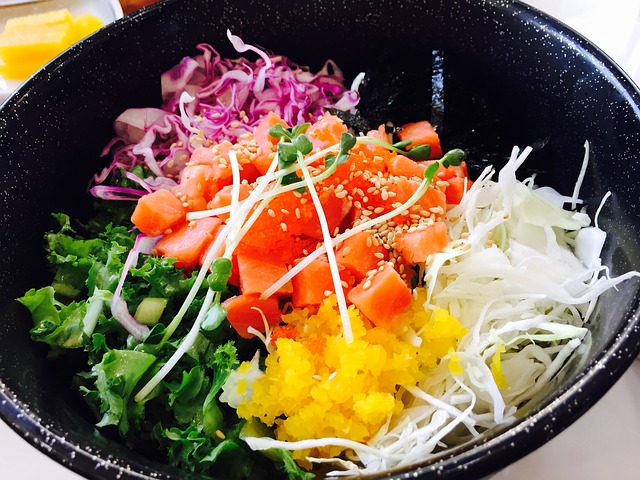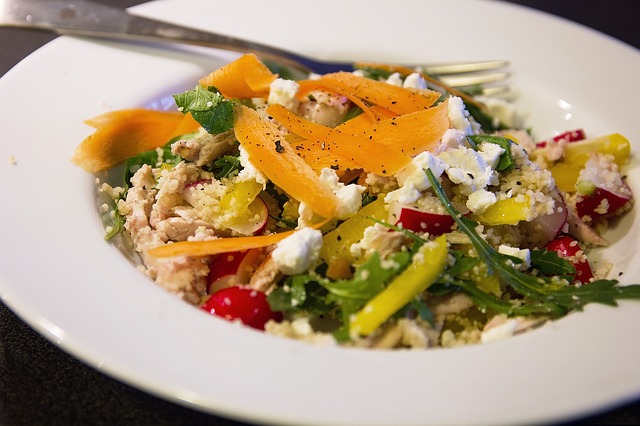If you took a moment to think about what you’ve been eating for the last few weeks, would you be pretty impressed with yourself or would you feel like you could more to do be healthier? In this day and age, when you hear the word diet, you automatically think about weight loss. For many people, the aim of healthy eating is to lose weight, but dropping a dress size shouldn’t be your only motivation to improve your diet. Your body depends on the foods you eat, and you should want to follow a regime that provides it with everything it needs. If you’re on a health drive, here are some tips to help you tailor-make a diet that suits your needs.
Image credit https://pixabay.com/en/food-hoedeopbap-salmon-hoedeopbap-908745/
Preventing deficiencies
Deficiencies occur when you’re not getting enough vitamins or minerals from your diet, or your body isn’t able to break down and use the nutrients your diet provides. A vitamin or iron or calcium deficiency, for example, can leave you feeling weak and lethargic and increase your susceptibility to illness. Before you start checking out articles like AlgaeCal reviews on Supplement Police or taking iron tablets, consider whether you need to change your diet. Think about the kinds of foods you eat and whether they represent the right choices for somebody who at risk of a deficiency. Work with your doctor or a nutritionist to alter your diet and ensure that you’re taking in higher quantities of the vitamins or minerals you lack. In some cases, modifying your diet may be sufficient to improve your health. In others, supplements may be recommended.
Moderating your calorie intake
Being healthy isn’t just about making the right food choices. It’s also about learning how to fuel your body effectively. If you look online for daily calorie intake advice, you’ll find a range of numbers between 1,500 and 2,500 for women. This is a wide range, and it’s wise to consider your needs based on your activity levels. If you have a sedentary job and you don’t exercise, you should aim towards the lower end of the band. If your job means that you’re on the go all the time and you like to go for a jog or hit the gym after work, you’ll need more fuel in your tank. Find a balance that suits you. You don’t need to gorge on food all day, but you also don’t want to be hungry.
Designing a sustainable diet
Whether you’re trying to lose weight or you just want to be healthier, you need to find recipes and meals that you enjoy. There’s no point in trying to force yourself to eat foods you don’t like just because they’re all the rage on Instagram. Don’t cut out food groups or deprive yourself of treats for weeks. Stick to nutritious, balanced meals during the week and then have a chocolate bar or a takeout at the weekend.
Image source: https://pixabay.com/en/salad-lunch-food-healthy-meal-933268/
There’s no one size fits all when it comes to planning a diet that will suit your preferences and improve your health. Hopefully, this guide will help you to design a healthy eating plan, which is both nutritious and delicious.
*Disclaimer: Readers are advised to consult their doctor before making any important health decisions.

